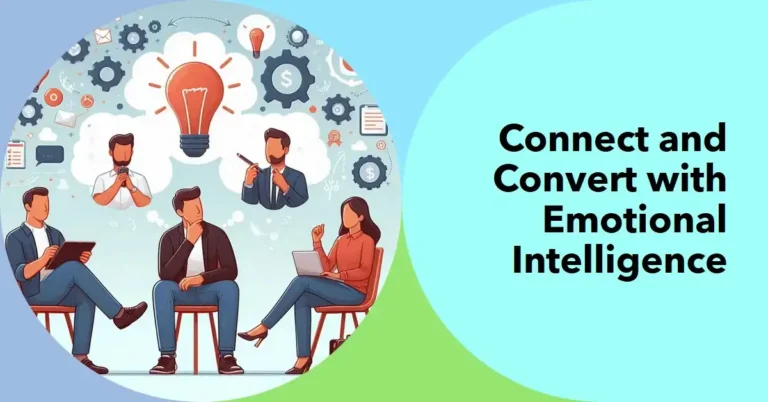Brands today need more than just good products. They need emotional intelligence. Emotional intelligence helps brands connect with people. This connection builds trust and loyalty.

What is Emotional Intelligence?
Emotional intelligence means understanding and managing emotions. It includes recognizing your own emotions. It also includes understanding others’ feelings. People with high emotional intelligence are good at handling relationships. They communicate well and solve problems easily.
Why Do Brands Need Emotional Intelligence?
Brands need to connect with their customers. Emotional intelligence helps in this connection. When brands understand customer emotions, they can create better experiences. These experiences make customers happy and loyal.
Benefits of Emotional Intelligence for Brands
- Better Customer Service: Brands with emotional intelligence offer better customer service. They understand customer needs and feelings. This leads to quicker problem-solving.
- Increased Loyalty: When customers feel understood, they stay loyal. They keep coming back to a brand they trust.
- Positive Brand Image: Emotional intelligence helps build a positive brand image. Customers see the brand as caring and understanding.
- Higher Sales: Happy customers are more likely to make purchases. Emotional intelligence can lead to increased sales.
How Brands Can Use Emotional Intelligence
Brands can use emotional intelligence in many ways. Here are some steps to get started.
1. Understand Your Audience
First, know your audience. Research their likes, dislikes, and needs. Use surveys and social media to gather information. This helps in understanding their emotions.
2. Listen to Feedback
Listen to what your customers say. Use feedback to improve your products and services. Show that you value their opinions.
3. Be Authentic
Customers value honesty. Be genuine in your communications. Avoid making false promises. Authenticity builds trust.
4. Show Empathy
Empathy means understanding and sharing the feelings of others. Show empathy in your customer interactions. This makes customers feel valued and understood.
5. Use Positive Language
Words matter. Use positive and encouraging language. This creates a positive experience for your customers.
Case Studies: Brands with High Emotional Intelligence
Let’s look at some brands that excel in emotional intelligence. These brands have successfully connected with their customers.
1. Apple
Apple is a great example. They understand their customers’ needs and emotions. Their products are user-friendly and innovative. Apple’s customer service is also top-notch. They show empathy and provide quick solutions.
2. Coca-cola
Coca-Cola connects emotionally through its marketing campaigns. Their ads often focus on happiness and togetherness. This emotional appeal resonates with people. It creates a strong bond with the brand.
3. Amazon
Amazon excels in customer service. They listen to feedback and make improvements. Amazon’s customer support shows empathy and solves issues quickly. This has built a loyal customer base.
Challenges in Using Emotional Intelligence
Using emotional intelligence is not always easy. Brands may face challenges like:
- Understanding Diverse Emotions: Customers have different emotions and needs. It can be hard to understand everyone.
- Maintaining Consistency: Emotional intelligence requires consistent effort. Brands need to be always attentive and responsive.
- Training Staff: Employees need training in emotional intelligence. This can be time-consuming and costly.

Frequently Asked Questions
What Is Emotional Intelligence In Branding?
Emotional intelligence in branding is understanding and managing emotions to connect deeply with your audience.
Why Is Emotional Intelligence Important For Brands?
Emotional intelligence helps brands build trust, loyalty, and long-term relationships with their customers.
How Do Brands Use Emotional Intelligence?
Brands use emotional intelligence by empathizing with customers, understanding their needs, and responding appropriately.
Can Emotional Intelligence Improve Brand Loyalty?
Yes, emotional intelligence fosters strong emotional connections, leading to increased brand loyalty and customer retention.
What Are Examples Of Emotionally Intelligent Brands?
Apple, Nike, and Coca-Cola are examples of brands that successfully use emotional intelligence to engage customers.
How Can Brands Develop Emotional Intelligence?
Brands can develop emotional intelligence by listening to customer feedback, being empathetic, and adapting to emotional cues.
What Role Does Empathy Play In Branding?
Empathy allows brands to understand and address customer emotions, creating a more personalized and impactful experience.
How Does Emotional Intelligence Affect Marketing?
Emotional intelligence in marketing helps create compelling, relatable campaigns that resonate deeply with the target audience.
Bottom Line
Emotional intelligence is crucial for brands. It helps in building strong connections with customers. Brands that use emotional intelligence see better customer service, increased loyalty, and higher sales. Understanding your audience, listening to feedback, being authentic, showing empathy, and using positive language are key steps. Brands like Apple, Coca-Cola, and Amazon show the power of emotional intelligence. Though there are challenges, the benefits make it worthwhile. Start using emotional intelligence today to build a stronger, more loyal customer base.
Remember, a brand that understands emotions wins hearts!
Related Content
Why is branding important for a business?
What’s the difference between branding and marketing?
Create Content Your Audience Actually Wants: 5 Must-Use Strategies
Build an Audience Online: Captivate & Grow Your Tribe!
Customer Loyalty Vs. Brand Loyalty: Unveiling Key Differences




